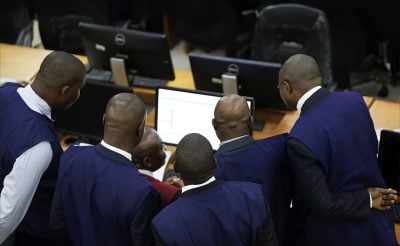Aso Rock has a new tenant and Nigeria has a new boss. The policy challenges that await President Tinubu on his desk are piled high and most are marked urgent. But if the “architect of Lagos” is to re-build the country, making Nigeria once again attractive to foreign investors will be fundamental to the success of his tenure.
To achieve this, it will take more than just delivering policy outcomes, he will be need to re-shape how Nigeria is perceived. He will need to change the narrative. He will need to re-build trust with investors who have been burnt by Nigeria in recent years. Like any tarnished brand, he will need to show the world that Nigeria is under new management and worth another look.
The flight of foreign direct investment (FDI) from Nigeria under the Buhari has been truly startling. According to the National Bureau of Statistics, annual FDI went from $1.45bn in 2015 to $698.7m in 2021 and just $468.08m in 2022.
Time for a re-set
Investors have been deterred because of the terrible state of insecurity in much of the country, crumbling infrastructure, an economic system under huge strain (see the currency crisis earlier this year as just one example), pervasive corruption, all overseen by a president who has been unwilling or unable to get a grasp on the crisis spiraling out of control. This has impacted on investor’s confidence that if they put money into Nigeria they would be able to get it out again.
With a change in president there’s normally an opportunity for a national re-set. But President Tinubu is coming in under a cloud of corruption allegations from his time as Lagos Governor (all of which he denies). He is also widely seen as the country’s fiercest political Godfather, and he enters office off the back of an election whose result is being contested in court because of allegations of vote rigging.
The US deemed the behavior by some of Tinubu’s supporters so egregious that they were added to the US sanctions list. This all suggests Nigeria will continue down the path it has been stumbling down for the last eight years – much to the despair of Nigerians and all those who love the country. But perhaps you shouldn’t write off Nigeria just yet.
Yes, the election is being disputed, but most believe the result will be upheld by the court. Tinubu may well come with significant baggage, but even his harshest critics cannot deny he is effective. Perhaps his long and grubby history as the nation’s political fixer can help him administer a hugely complex country which has been so poorly managed for so long.
Perhaps now that his legacy will be determined by whether he can address insecurity and corruption (which many believe he’s benefitted from) he will dedicate his significant power to tackling them head on. Perhaps he is exactly the sort of operator Nigeria needs in this moment.
Promise of economic competency
Prior to the election, in the refined air of the Hilton Transcorp Hotel in Abuja, Nigeria’s elites could be heard confiding in one another that they believed any of the three main candidates would be an improvement on the Buhari administration.
They believed all the candidates understood business in ways Buhari did not (he was a military leader with no business expertise). There was also a feeling that whoever triumphed would surround themselves with effective advisers who can deliver for Nigeria and reassure the watching global investor market.
Now in office, President Tinubu is tipped to be bringing in a formidable team which includes the widely respected Wole Edun, the businessman and philanthropist who served in Tinubu’s Lagos administration and has played a key part in Tinubu’s transition team. This bodes well for the administration’s level of economic competency.
Tinubu needs to woo investors
Lastly, investors want a reason to come back and invest in Nigeria. Nigeria is the unfulfilled promise of Africa. Its people are fiercely entrepreneurial. The country’s economy, despite years of mismanagement, is still huge and it has massive untapped potential. For those who want to expand to sub-Saharan Africa but don’t know the continent, Nigeria is often the first choice (or second, after South Africa).
This is testament not only to scale of its economy, but to the cultural power of the country and the footprint and impact of its diaspora. Nigeria is an attractive proposition on paper, and investors, even if they’ve been burnt by the country in the past, can be persuaded to give the country another chance through good governance and effective communications.
Tinubu has to deliver from day one. Not just on implementing policies to crack down on insecurity, ending the fuel subsidy which has deterred investment in the oil sector, and stomping on corruption which holds back businesses. He must also skillfully communicate with investors, both in the East and West, and tell a compelling story about how Nigeria is being turned around.
Like any failing business that has been taken over, the new boss needs to show that they’ve learned from the mistakes of the past, listened and responded to criticism, and now will implement the changes necessary to once again be worth considering.
It’s an uphill task, but perhaps the fiercely effective Tinubu is uniquely placed to do it. Nigerians will be holding their breath and hoping he can.
Want to continue reading? Subscribe today.
You've read all your free articles for this month! Subscribe now to enjoy full access to our content.
Digital Monthly
£8.00 / month
Receive full unlimited access to our articles, opinions, podcasts and more.
Digital Yearly
£70.00 / year
Our best value offer - save £26 and gain access to all of our digital content for an entire year!

 Sign in with Google
Sign in with Google 



